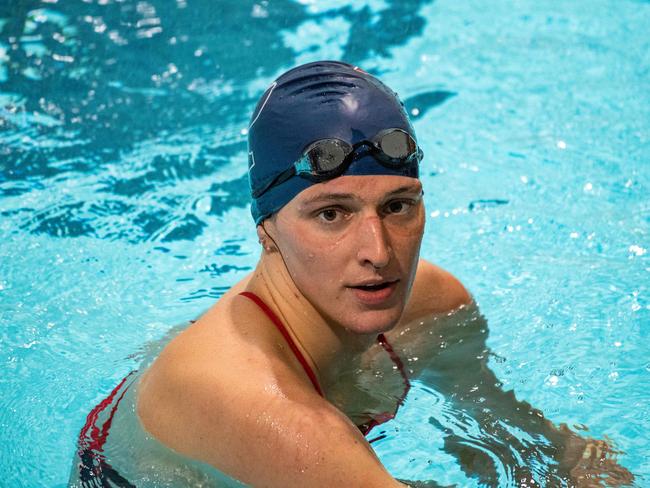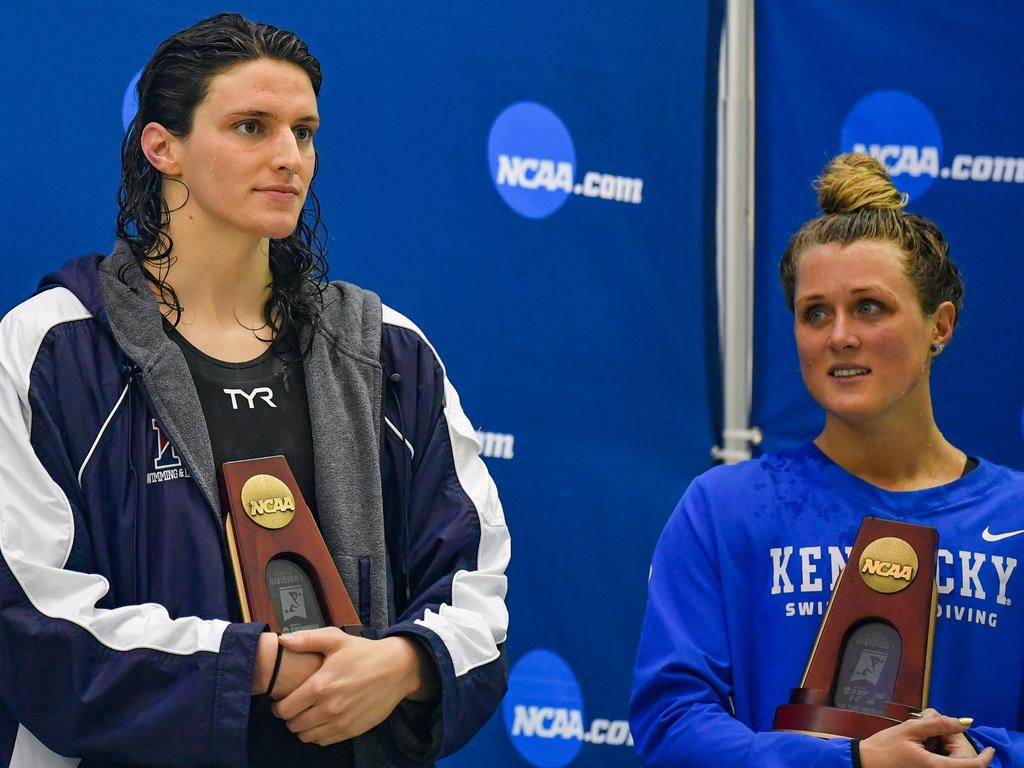Transgender swimmer Lia Thomas fails in legal bid to qualify for Paris Olympic Games
Top female swimmers hail decision which recognises World Aquatic’s rules to keep post-puberty trans athletes from accessing women’s events, stopping Thomas from qualifying.

Transgender United States swimmer Lia Thomas has lost any chance of competing in the Paris Olympic Games after losing a significant case against World Aquatics in the Court of Arbitration for Sport.
Thomas, 25, had taken the case to the Lausanne-based court to try and force World Aquatics to overturn its rules which bars anyone who has undergone any part of male puberty from competing in the female category of the sport. But the court has ruled against Thomas and the swimmer will not be eligible to try for Olympic Games selection in the female category.
British swimming champion Sharron Davies tweeted after hearing the court decision: “Good, no elite female athlete will have to lose out to this mediocre 6’4ft male swimmer.”
Valentina Gomez, a former US swimmer, supported Davies, saying: “As a former NCAA division one swimmer, with an older brother, who is an Olympian, These are great news. Keep women’s sports female! That dude couldn’t hack it in swimming so he hijacked our sport.”
Thomas was born male and went through puberty as a male ranked in the mid 500s in men’s competitions, and a career high of 65th in the 500 yards freestyle in 2019 before becoming a trans woman and winning the female 500m NCAA college title in March 2022, sparking a flurry of controversy. In a separate legal case that is still ongoing, 16 US women have since lodged a legal claim from that race claiming the National Collegiate Athletics Association had institutionalised discrimination and cheating against them.
World Aquatics maintained that Thomas was not eligible to contest their rules because she wasn’t a member of World Aquatic’s affiliated organisation, USA Swimming.
Thomas had argued that the World Aquatics rules made it impossible for her to both qualify and to register for a World Aquatics competition and that they should be made invalid and unlawful. However the three person panel ruled on Wednesday that Thomas “lacks standing to challenge the policy and the operation requirements in the framework of the present proceedings”.
The 24 page Judgement said: “The panel concludes that since the Athlete is not entitled to participate in ‘Elite Event’ within the meaning of USA Swimming Policy, let alone to compete in a World Aquatics competition, which occurs upon registration with World Aquatics prior to a competition or upon setting a performance which leads to a request for registration as World Aquatics world record, she is simply not entitled to engage with eligibility to compete in World Aquatics competitions.
“The policy and the operational requirements are simply not triggered by her current status.”
World Aquatics officials said the decision was a major step forward in efforts to protect women’s sport.
“World Aquatics is dedicated to fostering an environment that promotes fairness, respect, and equal opportunities for athletes of all genders and we reaffirm this pledge,” the organisation said in a statement. The stance of international sports federations is somewhat different to the Australian Sports Commission which encourages trans participation in women's sports at community levels.
The decision centred around Thomas’ eligibility to challenge the rules, and not on the many physical advantages scientists say are conferred on male born athletes who transition to become a woman after going through puberty.
Meanwhile the International Olympic Committee executive board has recommended the next Winter Olympics to be held in the French Alps in 2030 and then in Salt Lake City-Utah in 2034. The two bids will be put to the IOC session before the Paris Olympics for ratification.








To join the conversation, please log in. Don't have an account? Register
Join the conversation, you are commenting as Logout